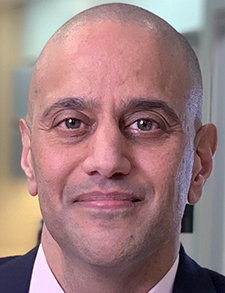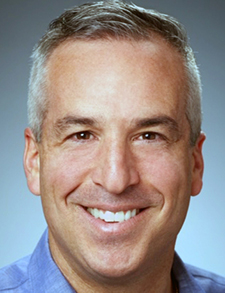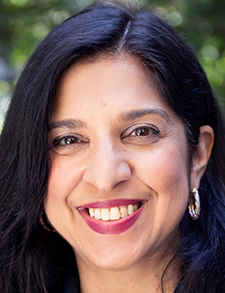It’s the sign of the times—24-hour news cycles, information at your fingertips, and “experts” everywhere willing to share their voices. During the last two years especially, health care professionals have been subjects of news stories and sources for reports on the pandemic and health care.
Providing clarity, expertise, and timely information in a professional manner helps society build trust in physicians, medicine, and health care systems—particularly when there’s so much miscommunication and misinformation. That’s why it’s important now more than ever to become comfortable with the media—be it as a guest on a podcast or local news station, a source in a magazine or newspaper, or even just being yourself (professionally) on Twitter or YouTube.
We spoke with a few physicians who know a thing or two about being in the spotlight to glean some tips and tricks for the best way to represent yourself in the media.
You’re the expert
Having a journalist ask to interview you can be both exciting and a bit nerve-racking. This is an opportunity to discuss what you’re passionate about, and to present yourself as a subject matter expert. At the same time, you don’t want to say or do anything you might regret.
When a reporter requests an interview, be honest about whether you’re the right person to discuss the topic. “It’s flattering to be asked, but if the subject matter is outside of your expertise, it’s best to refer a colleague,” said Kimberly D. Manning, MD, FACP, FAAP, professor of medicine and associate vice chair of diversity, equity, and inclusion in the department of medicine at Emory University School of Medicine in Atlanta.
Dr. Manning is also a nationally recognized public speaker, the co-creator of “The Human Doctor” podcast, which explores the human side of medicine, and an award-winning blogger.

Dr. Shah
If you’re the right expert, you will want to respond quickly to the journalist because most of them work on tight deadlines and will ask other physicians if you delay, said Samir S. Shah, MD, MSCE, MHM, editor-in-chief of the Journal of Hospital Medicine, director of the division of hospital medicine at Cincinnati Children’s Hospital Medical Center, and a professor in the department of pediatrics at University of Cincinnati College of Medicine in Ohio.
Just as when preparing for a job interview or speech at a medical conference, you should prepare for a media interview. If you’re giving an interview in which your organization’s name might be used, be sure to get clearance through its public relations (PR) office.

Dr. Shapiro
And if you’re interested in doing more media interviews, tell them to reach out to you in the future, said Mark Shapiro, MD, a hospitalist at Providence Medical Group-Northern California in Santa Rosa and the founder, and host of “Explore The Space” podcast, which examines the interface between health care and society.
Your institution’s PR office may offer a media press session to teach you how to interact with reporters. A PR person may also be willing to join you for an interview, provide feedback, and manage any challenges, Dr. Shah said. National trade meetings might also have formal media training sessions.
Print interviews
Before beginning an interview, Dr. Shah asks reporters if he can review the article (or at least his specific quotes) prior to publication to ensure accuracy. “Most reporters are willing to do that, however the tighter their deadline the less likely you’ll have that opportunity,” he said. Larger forums may also be less likely to grant reviews.
If a journalist won’t allow her to review her comments, Dr. Manning may or may not proceed with the interview. “My comments not only reflect me and can potentially hurt me if I’m misquoted, but also my patients, co-workers, and others,” she said. “I need to be my own brand manager.”

Dr. Arora
Vineet Arora, MD, MAPP, MHM, dean for medical education at The Pritzker School of Medicine at the University of Chicago asks when she can expect a piece to be published, and whether there is a fact checker—especially for anything controversial. “When applicable, I’ll say that I’m uncomfortable discussing a matter or that I will follow up with a written statement to avoid saying anything I wouldn’t want to,” she said.
Dr. Arora is an internationally recognized expert on patient handoffs in health care and has extensive experience using social media and videos as educational tools. Her videos have been featured on National Public Radio and in The New York Times.
On-screen interviews
If you’ve never done an on-screen interview (be it live, recorded, or virtual), Dr. Manning recommends watching a few online. Find them on a local or national news channel’s website and search for video clips under the medical news or health section.
During the interview, keep in mind that you’ll be on the record. “Assume that your conversation is being recorded, and ask if this is the case,” said Dr. Shapiro.
Dr. Arora recommends having two to three talking points that you want to drive home. “Stick to your message,” she said. “Even if you’re asked to go off-script or are thrown a curve ball, find a way to pivot back to the answer you want to give or your area of expertise.”
Along these lines, Dr. Shah advised getting to the point quickly. “When a reporter is quoting you, they don’t want to quote 12 sentences, they want a sentence or two,” he said. “Practice delivering your points so it’s second nature during an interview.”
When speaking on camera, make sure you’re comfortable with how you look, or it could throw you off. “Be yourself; if English isn’t your first language and you have an accent, that’s fine,” Dr. Manning said.
Your rhythm, tone, and pace of how you speak are important when having an audio or video interview. “Practice speaking at a volume and pace that feels natural, but also not too slow or fast,” Dr. Shapiro said. “Listen to see if you unconsciously make lots of adventitious sounds like ‘um’ and ‘uh,’ or if you click your tongue, clear your throat excessively, and so forth. Practice speaking while minimizing these sounds. Too many will make an audio interview difficult to listen to.”
And be sure to practice. “Physicians aren’t [always] used to speaking about complex medical topics with a general audience, but they’re very comfortable doing so with colleagues,” Dr. Shapiro said. “So reset how to communicate.”
Dr. Manning warns to watch out for words disguised as jargon. For example, a physician might use the word “appreciate” to talk about something they see on a physical exam. But most lay people aren’t familiar with that word in that context.
Try explaining key points with loved ones who don’t work in medicine. “If they can understand what you’re talking about, then most likely others will too,” Dr. Manning said.
Dr. Arora suggests keeping your answers crisp and having a back-and-forth rapport so you don’t use all your energy answering the first question. “A lot of times a sound bite is used, so be sure to think about your mental script ahead of time and what your sound bite might be,” she said.
Many interviews on camera now occur via video conferencing because of the pandemic. When doing these types of interviews, have a clear and clutter-free background, make sure your camera lens is clean, keep your camera at eye level, and have good lighting, Dr. Shah said.
Sound quality is also important, so be sure to have a quality microphone that connects to your computer. Due to their visual appearance, avoid wearing headphones or earbuds, if possible, Dr. Shah said.
Using social media
Another way to relay information is to use social media platforms. Dr. Arora recommends finding your voice and considering your goals for each platform. For example, maybe you engage on social media personally more on Facebook or Instagram and professionally more on Twitter, Dr. Arora said.
Dr. Shah advised having a mission statement and thinking about what you want to be known for. “Have a defined set of interests and expertise,” he said. “Not exclusively, but predominantly tweeting about those things can help people understand why they chose to follow you.”
Dr. Manning advises having a social media profile designated for professional use. “Before you say or do anything, decide how you wish to brand yourself,” she said. “Make sure what you post on social media aligns with your mission.”
“If you’re going to share medical information, you’ll want to be known as a trusted resource,” Dr. Manning said. “Readers will look through your page to see what else you’re talking about and who you’re interacting with to determine if you’re indeed a trusted resource.”
While not every hospitalist wants to be in the spotlight, every hospitalist does have a wealth of experience and knowledge their communities and colleagues can benefit from. If one of your professional goals is to share that information publicly, using these tips can help you feel more comfortable doing so.
Karen Appold is an award-winning journalist based in Lehigh Valley, Pa. She has more than 25 years of editorial experience, including as a newspaper reporter and newspaper and magazine editor.